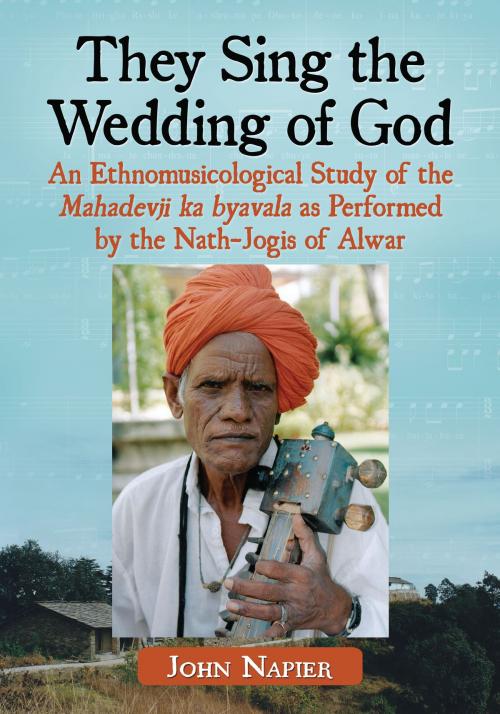They Sing the Wedding of God
An Ethnomusicological Study of the Mahadevji ka byavala as Performed by the Nath-Jogis of Alwar
Nonfiction, Entertainment, Music, Religion & Spirituality| Author: | John Napier | ISBN: | 9781476602134 |
| Publisher: | McFarland & Company, Inc., Publishers | Publication: | June 4, 2013 |
| Imprint: | Language: | English |
| Author: | John Napier |
| ISBN: | 9781476602134 |
| Publisher: | McFarland & Company, Inc., Publishers |
| Publication: | June 4, 2013 |
| Imprint: | |
| Language: | English |
In Rajasthan, India, a caste of musicians and mendicants, the Nath-Jogis, sing stories of kings who renounce their thrones to become wandering mendicants. They also sing of a god, Mahadeva, Shiva, who must abandon his world-renouncing life and marry, thus establishing the very caste that tells his story. This is the first detailed ethnomusicological study of the music of this caste, examining how the existential questions of the sung stories—of the conflict between loyalty to families or communities and the transcending desire to renounce the material world—are articulated in musical performances in which the caste’s own ethnography is inscribed. Discussing the relationship between the performed repertoire and the caste’s identity, the contexts of performance and ways in which familiar stories are effectively retold, the book offers a transcription, translation and musical and ethnographic analysis of one performance, by Kishori Nath, and shows how the questions the performances project are not merely speculative acts of self-identification but also challenges to audiences to consider their own responses.
In Rajasthan, India, a caste of musicians and mendicants, the Nath-Jogis, sing stories of kings who renounce their thrones to become wandering mendicants. They also sing of a god, Mahadeva, Shiva, who must abandon his world-renouncing life and marry, thus establishing the very caste that tells his story. This is the first detailed ethnomusicological study of the music of this caste, examining how the existential questions of the sung stories—of the conflict between loyalty to families or communities and the transcending desire to renounce the material world—are articulated in musical performances in which the caste’s own ethnography is inscribed. Discussing the relationship between the performed repertoire and the caste’s identity, the contexts of performance and ways in which familiar stories are effectively retold, the book offers a transcription, translation and musical and ethnographic analysis of one performance, by Kishori Nath, and shows how the questions the performances project are not merely speculative acts of self-identification but also challenges to audiences to consider their own responses.















